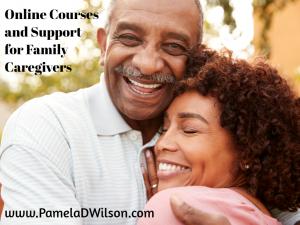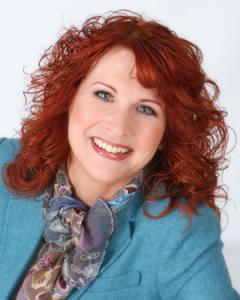How to Get Guardianship of a Parent: A New Online Course for Family Caregivers
A new online course from Pamela D Wilson offers insight into what adult children need to know about how to get legal guardianship of a parent.
GOLDEN, CO, USA, January 29, 2021 /EINPresswire.com/ -- How to Get Guardianship of a Parent – A New Online Course for Family Caregivers
Family members who are willing to become a guardian for a parent can learn about guardianship in a new online course, How to Get Guardianship of a Parent. This newly released program is offered by Pamela D Wilson, a professional fiduciary and court-appointed guardian for the elderly and disabled for more than ten years.
According to Wilson, the process to petition for guardianship is a step that a family member can take when an agreement exists about a parent’s need for a guardian. Adult children who have the best interests of parents at heart may be hesitant to petition for guardianship. Fear of high legal costs and unfamiliarity in working with attorneys is a concern of family caregivers interested in pursuing guardianship.
Fears also exist when adult protective services or the state becomes involved in the life of a parent. Public guardians may be appointed by the state as a last resort when no other willing decision-makers or qualified family members exist. Not all states have public guardian programs. In states where private guardian practices exist, selecting a professional fiduciary to serve as a guardian is an alternative to the state taking over a parent's life if family members are unwilling or unable to serve as a court-appointed guardian.
A Free On-Demand Webinar Gives Family Members Confidence About Becoming a Guardian
In a free-on-demand-webinar, Wilson shares the course outline that includes sections about medical decision-making, how to determine if a parent needs a guardian, the process of petitioning for guardianship, and most importantly, the responsibilities of being a guardian. The program gives adult children confidence and insights about what it takes to be a guardian for a parent and the process to petition the court for guardianship.
A high level of interest in obtaining legal guardianship of a parent exists. Wilson's course is purposely affordable at $97—less than the cost of submitting a guardianship petition in most states and lower than the hourly rate of an elder law or probate attorney $250 or more an hour. In the program, Wilson shares unexpected aspects of being a family guardian so that participants are aware of the level of advocacy necessary to work with healthcare and other service providers.
She also shares when hiring an elder law or probate litigator may be wise for contested guardianship hearings that can cost upwards of $5,000 or more. Wilson is an expert in guardianship and care management and has testified at numerous court hearings for both contested and uncontested guardianship on behalf of her clients.
Why Might a Parent Need a Guardian?
Adult guardianship is a process to protect vulnerable persons whose functional limitations prevent evaluating information and making informed decisions about health, money, safety, and well-being. The term guardian usually applies to healthcare. However, legal terminology differs by state. In some states, a guardian of the person is appointed for healthcare matters and a guardian of property for financial matters. If a family member serves in both roles, some type of oversight can minimize the potential of abuse by a family guardian.
Adult children who become involved in the care of parents diagnosed with dementia or Alzheimer’s may struggle to provide care when a parent is unable to recognize self-care deficits. In these caregiving situations, elderly parents may forget to take medications and attend doctor appointments. Weight loss often occurs as a result of forgetting to eat. Bathing, hygiene, and remembering to change dirty clothing are often inconsistent at best. This lack of self-care and insight result in self-harm or neglect for a person who is cognitively impaired.
In the online guardianship course, Wilson discusses the difference between the decision-making power of an agent under a durable medical power of attorney appointment versus a court-appointed guardian. The difference between legal capacity and medical capacity is also discussed. Family guardians must be aware that the healthcare system holds contrasting opinions about the ability of a person diagnosed with memory loss to make decisions. This difference of opinion can result in harm to an elderly parent when a guardian lacks education about managing healthcare needs.
Vulnerable Elderly With Memory Loss Can Benefit from Guardianship
Memory loss is a cruel diagnosis for the elderly living alone, with a spouse, or with children and their caregivers. Add to memory loss, substance abuse, and mental illness and care situations exist where adult children and spouses feel overwhelmed by the day-to-day care. A parent who was a career airline pilot or a company executive over time becomes unable to recognize a spouse or children, hold a fork and feed him or herself or forget how to walk.
Older adults living alone without family near are the most vulnerable to abuse by non-family caregivers, home repair personnel, and other acquaintances who realize they have memory loss. Isolated elderly without access to transportation may not receive ongoing medical care that might diagnose memory loss. As a result, neighbors or others may report concerns to adult protective services for an investigation.
Family Guardians Benefit from Education
The best family care situations occur when adult children are willing and able to serve as guardians for parents. Even still, education gaps exist about the high duty of care and legal responsibilities of a court-appointed guardian.
Uneducated family members may believe that after becoming a parent's guardian, sole control over decision making and full access to financial resources exist. Not so. A guardian's role is to make decisions as a parent would have made the same decisions—not the decisions the guardian would choose to make for him or herself. All family guardians are encouraged to seek education about the role of being a guardian and managing care for aging parents.
More information about the online course How to Get Guardianship of a Parent and other resources for caregivers are available on Wilson’s website at www.PamelaDWilson.com. Interested parties may also contact Wilson by email at Inquiry_For_Pamela@PamelaDWilson.com or call 303-810-1816 for more information.
P Dombrowski-Wilson
Pamela D. Wilson, Inc.
+1 303-810-1816
email us here
Visit us on social media:
Facebook
Twitter
LinkedIn
Guardianship Course Video Introduction
Legal Disclaimer:
EIN Presswire provides this news content "as is" without warranty of any kind. We do not accept any responsibility or liability for the accuracy, content, images, videos, licenses, completeness, legality, or reliability of the information contained in this article. If you have any complaints or copyright issues related to this article, kindly contact the author above.



